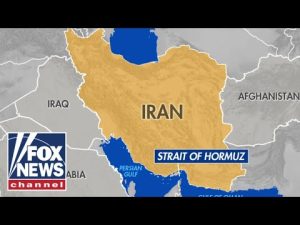In today’s world, vigilance is not just a virtue—it’s a necessity, especially when it comes to who is crossing our borders. Recent discussions on a conservative news channel highlighted the importance of immigration enforcement as it relates to national security. With threats like potential cyberattacks from Iran looming and the unsettling reality that certain foreign groups might embed themselves within our borders, who wouldn’t want to know exactly who’s coming into the country and for what purpose?
For nearly four years, the United States found itself flying blind in terms of border security, raising questions about how well we really know the people who cross into our country. As a former Secretary of Homeland Security put it, the Department of Public Security and the FBI remain infinitely watchful for credible threats against the homeland, though current assessments suggest no imminent danger. Eyes are not just on the usual suspects like cyber threats from Iran, but also on more discrete methods by which malevolent actors—let’s call them what they are—could infiltrate the United States.
With the situation as it stands, it’s clear that border security is as much about national security as it is about upholding the rule of law. When border patrol officers are unable to keep track of every single person crossing into the U.S., it stands to reason that some people with less than noble intentions could exploit this weakness. Indeed, the Secretary explained that many individuals pay a premium to cartels specifically to avoid detection, which should raise alarm bells for everyone paying attention.
And if one wonders whether Iran is close to obtaining the nuclear capability they so doggedly pursue, the conversation turns to past actions—a compelling reminder that these threats are very real. Since 1979, Iran’s government has been trying its hardest to either kidnap or harm Americans. With over 200 attacks on international shipping in recent years and numerous assaults on American forces in the Middle East, the threat is neither new nor easy to dismiss. Any strategy that prevents these dangerous weapons from falling into the wrong hands should be considered a victory, albeit a temporary one, until the next plot is hatched.
While some continue to discuss the potential of gathering Iran around a negotiating table—as if anyone’s genuinely expecting afternoon tea and peace treaties—it’s hard to ignore the less savory aspects of this drama. Any sitting administration needs to balance well-intentioned diplomatic engagements against cold, hard evidence of past aggression. Step back from the negotiation table briefly, and focus instead on the systems in place that keep us safe: a multi-layered defense system that doesn’t just rely on a mirage of golden domes but also incorporates cutting-edge technology and coherent networking to button up vulnerabilities.
In the end, these discussions remind us all of the grim reality that the stability of a nation often rests on knowing who’s in your backyard and making sure the locks are strong and impenetrable.







